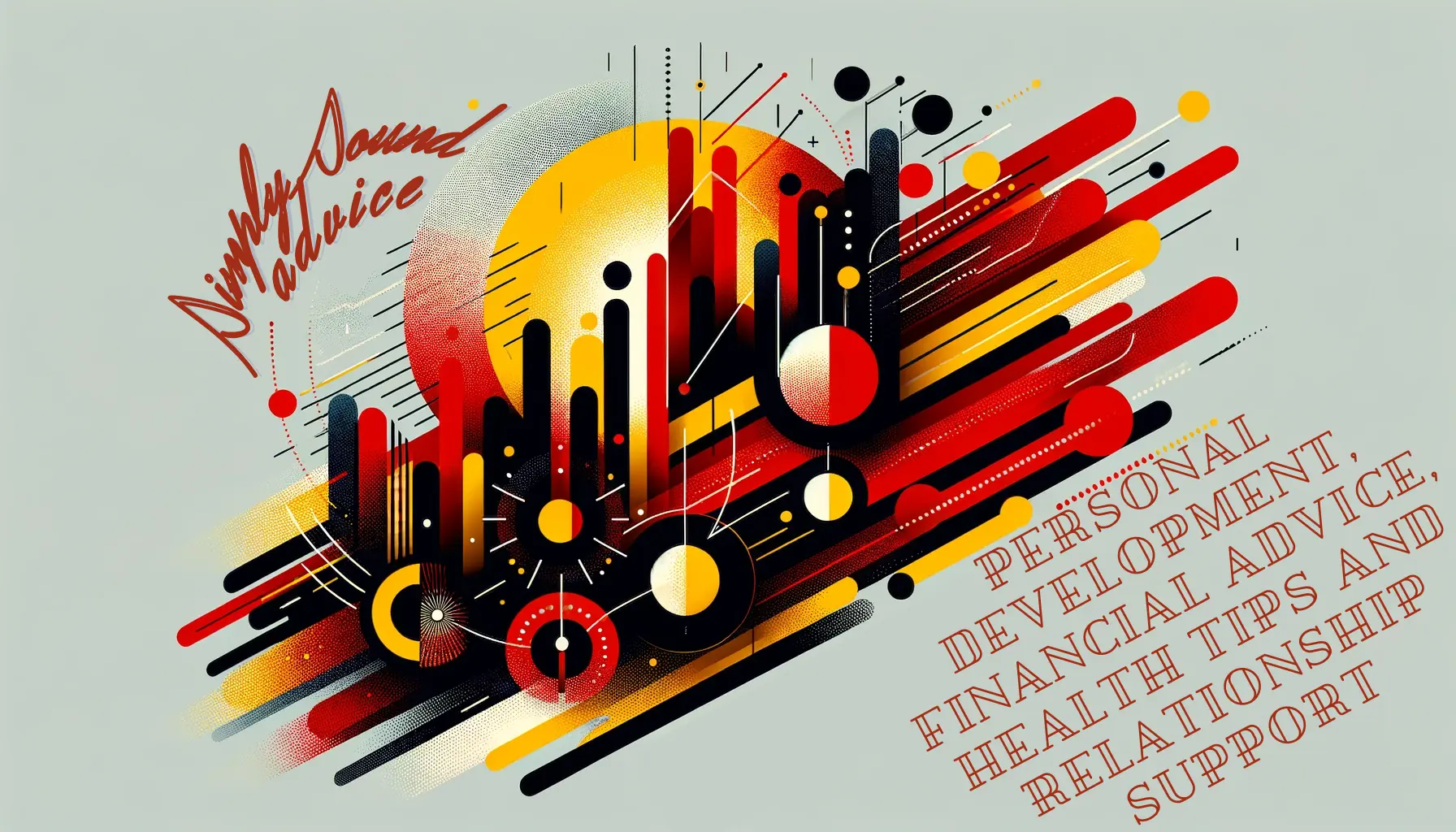- Introduction: Unraveling the Nature of Parasocial Relationships
- Celebrity Infatuation: The Evolution of Fan Engagement
- Psychological Perspectives: Dissecting the One-Sided Bond
- Social Media and Parasocial Dynamics: The Double-Edged Sword of Digital Connectivity
- The Emotional Investment: When Admiration Becomes Attachment
- The Dark Side of Attachment: Recognizing Unhealthy Parasocial Relationships
- The Illusion of Intimacy: Navigating the One-Sided Nature of Parasocial Relationships
- Parasocial Relationships During the Pandemic – A Case Study
- The Potential Benefits of Parasocial Relationships
- The Impact on Real-Life Relationships: Maintaining a Healthy Balance
- Coping Mechanisms: Managing Parasocial Relationships Effectively
- Understanding Parasocial Relationships: Insights from Recent Studies
- Practical Tips and Guidance: Managing Parasocial Relationships
- Conclusion: Navigating the Complex World of Parasocial Relationships
- Dive Deeper with Our Forum: Join Simply Sound Society Today!
Introduction: Unraveling the Nature of Parasocial Relationships
The Digital Shift in Celebrity Interaction
In our current digital landscape, the phenomenon of parasocial relationships, often unhealthy in nature, has become a topic of significant interest and concern.
As we delve deeper into the world of social media, the way we perceive and interact with celebrities undergoes a radical transformation. This shift prompts us to question the healthiness of these one-sided emotional investments.
Let’s dive deeper into this topic “Are Parasocial Relationships Unhealthy?”!

Admiration or Obsession? Understanding Parasocial Dynamics
The transition from mere admiration to a potential obsession with public figures raises critical questions about the nature of these relationships. Are these evolving parasocial bonds a benign form of celebrity admiration, or do they represent a deeper, potentially unhealthy obsession?
Celebrity Infatuation: The Evolution of Fan Engagement
Redefining Celebrity-Fan Relationships
Gone are the days when celebrities were distant figures of admiration. Today’s social media platforms have dismantled these barriers, fostering more intimate, albeit one-sided, connections with celebrities.
This newfound accessibility prompts us to reevaluate the dynamics of fan engagement: Is this emotional proximity to celebrities a harmless evolution, or does it signal a shift towards unhealthy parasocial relationships?
The Psychological Underpinnings of Parasocial Bonds
These relationships, reminiscent of adult imaginary friendships, have become more complex in the digital era. The continuous digital interaction fuels a sense of familiarity and emotional attachment, leading us to question the psychological impact and healthiness of these one-sided connections.
Psychological Perspectives: Dissecting the One-Sided Bond
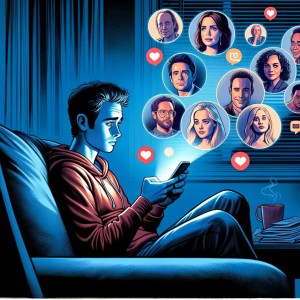
Classifying Parasocial Relationships
Parasocial relationships vary in nature and intensity, ranging from casual, entertainment-focused interactions to intense, personal bonds that may approach the borderline of being pathological.
Understanding these variations is key to exploring the spectrum of parasocial interactions and their potential to be unhealthy.
The Balance Between Healthy and Unhealthy Relationships
Determining the healthiness of a parasocial relationship often reflects our emotional and social well-being. While some find comfort and belonging in these connections, for others, they may indicate underlying emotional struggles or mental health challenges.
This exploration seeks to understand where healthy admiration ends, and unhealthy obsession begins.
Social Media and Parasocial Dynamics: The Double-Edged Sword of Digital Connectivity
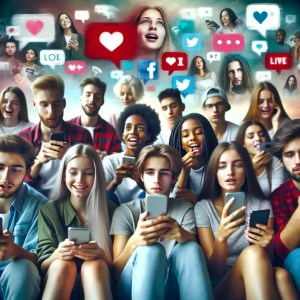
Facilitating Parasocial Bonds through Social Media
Social media platforms significantly influence the formation of parasocial relationships, offering a constant and intimate window into celebrities’ lives.
This ease of access can foster feelings of closeness but may also lead to adverse mental health outcomes through relentless comparisons and heightened expectations.
Influencers and Their Enhanced Impact
The role of influencers, as a new breed of digital celebrities, is pivotal in shaping these one-sided relationships. Their continuous interaction with followers, often blending personal and promotional content, can deepen parasocial bonds, influencing their audience’s perceptions and decisions.
The Emotional Investment: When Admiration Becomes Attachment
The Depth of Emotional Involvement
Parasocial relationships often involve significant emotional investment. Fans might experience genuine happiness or sadness in response to a celebrity’s life events, which can be both comforting and concerning. Discerning when this emotional investment becomes an unhealthy attachment is crucial.
Emotional Dynamics in Parasocial Interactions
The emotional dynamics within parasocial relationships range from mild interest to deep emotional attachment. Understanding these nuances is key to recognizing when these interactions turn from benign to potentially unhealthy.
The Dark Side of Attachment: Recognizing Unhealthy Parasocial Relationships
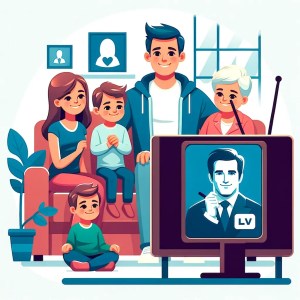
Parasocial Relationships: Negative Effects Explored
Delving deeper into the negative effects of parasocial relationships reveals a spectrum of potentially harmful outcomes. These range from emotional distress and financial hardships to more severe impacts like developing an obsessive fixation. Understanding these negative effects is key to identifying when a seemingly benign admiration crosses into unhealthy territory. This awareness is crucial for maintaining a balanced perspective on celebrity and media figure interactions.
Signs of Unhealthy Parasocial Involvement
Recognizing the signs of unhealthy parasocial relationships is vital. Look out for indicators like overspending related to fandom, misinterpretation of interactions, and social conflicts stemming from these one-sided bonds.
Psychological Risks of Over-Investment
The most severe outcomes of unhealthy parasocial relationships can include self-directed or externalized violence. Other signs, such as emotional distress over a celebrity’s actions or neglect of personal life and relationships, may also indicate problematic parasocial relationships.
The Illusion of Intimacy: Navigating the One-Sided Nature of Parasocial Relationships
Understanding the Asymmetry of Parasocial Bonds
Parasocial relationships, inherently one-sided, often create an illusion of intimacy. While individuals may feel a deep connection to a celebrity or influencer, it’s crucial to recognize that these bonds are not reciprocated. This understanding is essential to maintain a realistic perspective on these relationships and avoid the pitfalls of unhealthy attachment.
Differentiating Between Reality and Perceived Connections
The differentiation between real-life relationships and parasocial ones is vital. Unlike mutual relationships with friends and family, parasocial interactions are typically based on projections and assumptions rather than genuine two-way interactions. Recognizing this distinction is key to avoiding the negative effects of these imagined connections.

Parasocial Relationships During the Pandemic – A Case Study
The COVID-19 Pandemic and Parasocial Relationships
During the unprecedented times of the COVID-19 pandemic, our social interactions underwent significant changes. A study published in the Journal of Social and Personal Relationships sheds light on this transformation, particularly focusing on parasocial relationships.
Key Findings:
- Increased Parasocial Closeness: With social distancing protocols in place, many people found themselves engaging more deeply with celebrities and fictional characters through media. This increase in parasocial closeness was notably higher among individuals who experienced reduced face-to-face interactions.
- Stability in Friendships: Interestingly, while in-person interactions decreased, the sense of closeness in real-life friendships remained stable. People turned to technology to maintain these ties, reflecting the resilience of human connections.
- Compensation for Social Deficiencies: For some, the growth in parasocial closeness acted as a compensatory mechanism. As direct social interactions dwindled, meaningful socioemotional bonds with favorite media figures seemed to fill the void.
Implications: This case study highlights the adaptive nature of human socialization. In times when traditional forms of social interaction are limited, people can find solace and connection in parasocial relationships. It underscores the role of media in providing emotional support and a sense of normalcy in challenging times.
The Potential Benefits of Parasocial Relationships
Parasocial relationships, though one-sided, can have several positive effects on individuals. Let’s explore these benefits in detail:
1. Emotional Connection and Inspiration
- Deep Emotional Engagement: Viewers develop genuine emotions towards TV characters or celebrities over time, experiencing feelings like grief or sadness when a character’s storyline ends. This emotional engagement is natural and can be beneficial, as it reflects our social nature.
- Source of Inspiration: Following public figures like singers, politicians, or sports stars who share a similar background or values can be inspiring. These figures can motivate us to pursue our goals or adopt healthier lifestyles.
2. Social Benefits and Learning Opportunities
- Safe Space for Social Interaction: For those uncomfortable in social situations, parasocial relationships offer a risk-free environment. There’s no fear of rejection, which can be reassuring for shy or socially anxious individuals.
- Boosting Confidence in Social Skills: Engaging with celebrities or characters on social media can serve as a form of social learning. This interaction can boost confidence and prepare individuals for real-world social interactions.
3. Identity Formation and Autonomy
- Aiding in Identity Development: A study in Frontiers in Psychology found that these relationships can help young people, and individuals of other ages, in forming their identities and developing autonomy.
4. Enhanced Social Connections
- Broadening Social Networks: Contrary to the belief that parasocial relationships might lead to loneliness, they can actually expand one’s social network. Individuals involved in these relationships often report having more connections and stronger friendships in their real lives
The Impact on Real-Life Relationships: Maintaining a Healthy Balance
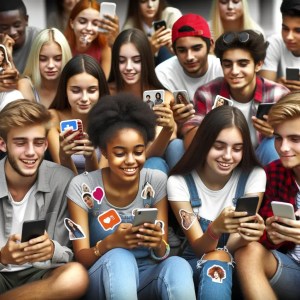
Balancing Parasocial and Personal Connections
It’s important to strike a balance between parasocial relationships and real-life interactions. Overemphasis on the former can strain our connections with loved ones, potentially leading to neglect of meaningful personal relationships.
Fostering Open Communication About Parasocial Bonds
Open communication with friends and family about parasocial relationships can help bridge the gap between these aspects of social interaction. Sharing interests and establishing boundaries can prevent potential harm to real-life relationships caused by unhealthy parasocial attachments.
Coping Mechanisms: Managing Parasocial Relationships Effectively
Strategies for Healthy Engagement with Media Figures
Developing coping strategies is crucial for those who find themselves overly invested in parasocial relationships. Limiting media consumption, engaging in offline activities, and seeking support from a therapist can help mitigate the risk of these relationships becoming unhealthy.
Professional Guidance for Unhealthy Parasocial Attachments
In cases where parasocial relationships cross into unhealthy territory, professional help may be necessary. Therapists can assist individuals in developing healthier coping mechanisms and addressing underlying emotional issues that may arise from these one-sided bonds.
Understanding Parasocial Relationships: Insights from Recent Studies
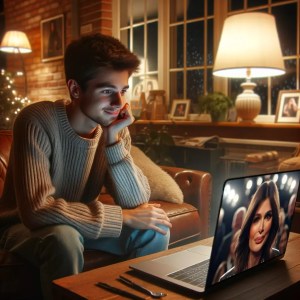
Social Media Influencers and Their Influence
- What’s the Study About?
- Researchers looked at how social media influencers (like famous people on Instagram) can really convince their followers.
- The study was in a famous psychology journal and focused on people who follow influencers for specific interests, like beauty products.
- Key Findings:
- It’s not just about how many followers you have; it’s also about sharing common interests.
- When followers really care about the same things as the influencer, they trust them more and might even buy things the influencer recommends.
The Role of YouTube in Mental Health
- Study Focus:
- This research, published in a scientific journal, explored if YouTube videos can help reduce unfair judgments about people with mental health issues.
- 557 people watched videos to feel close to the video creator, who then shared their own mental health experiences.
- Important Discoveries:
- After watching these videos, people showed less bias against those with mental health challenges.
- This suggests that even when we don’t meet someone, just hearing their story can change how we think about important issues like mental health.
Podcasts: More Than Just Entertainment
- Research Overview:
- A study in PLOS One journal investigated how listening to podcasts can meet our need for social connection.
- 308 adults worldwide participated, sharing their podcast listening habits and personal traits.
- Interesting Outcomes:
- People who often listen to podcasts find more meaning in their lives.
- Forming a bond with podcast hosts, even though they don’t know us, makes us feel more connected and valued.
- Certain personality traits, like being open to new experiences, make some people more likely to enjoy podcasts.

Practical Tips and Guidance: Managing Parasocial Relationships
Maintaining healthy boundaries in parasocial relationships is crucial for emotional well-being. Here are some practical strategies, drawing from various sources, to help manage these one-sided bonds:
1. Setting Healthy Boundaries
- Self-Awareness and Communication: Understand your own comfort levels in different situations. Be clear about what you’re okay with and communicate your needs assertively but respectfully.
- Examples of Healthy Boundaries: These can include saying no to things you don’t want to do, expressing your feelings responsibly, and addressing problems directly.
- Emotional Boundaries: It’s important to know how emotionally available you are to others. Remember, it’s okay to state your limitations, especially if others’ demands are too much for you.
2. Managing Parasocial Relationships with Celebrities
- Acknowledge the Illusion: Understand that what celebrities present in the media is a curated image, not their complete reality.
- Critical Media Consumption: Actively question the motives behind media content and avoid getting emotionally swayed by sensationalism.
- Media Consumption Boundaries: Set specific times for engaging with celebrity content to balance it with real-life interactions.
- Explore New Interests: Breaking the cycle of parasocial attachment can be achieved by discovering new hobbies or activities.
3. Reflecting on Emotional Attachment
- Introspection: Assess how deeply you’re emotionally attached to a celebrity or fictional character. Ensure this doesn’t overshadow your real-life interactions.
- Reducing Interaction Frequency: If you find yourself excessively engaged with a celebrity’s content, try to scale back gradually.
- Digital Boundaries: Use digital tools like unfollowing or muting social media accounts to regain control over your online habits.
4. Addressing Attachment Styles
- Uncover Patterns: Be aware of how you behave in relationships and notice any tendencies towards avoidance or anxiety.
- Challenge Assumptions: Question beliefs about emotional distance or the need for constant reassurance and seek healthier emotional responses.
- Mindful Engagement: Practice techniques to manage emotional barriers or stressors, like being open to vulnerability or using self-soothing techniques.
Conclusion: Navigating the Complex World of Parasocial Relationships
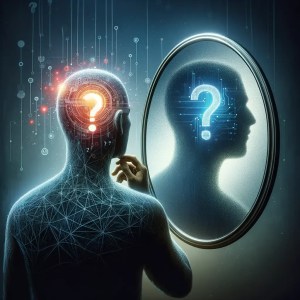
The Thin Line Between Admiration and Obsession
In concluding our exploration of parasocial relationships, it’s clear that these bonds occupy a complex space in our digital lives. While they can offer a sense of connection and entertainment, there’s a thin line between healthy admiration and unhealthy obsession. Recognizing this boundary is essential for maintaining our emotional well-being in an increasingly connected world.
The Role of Self-Awareness and Moderation
Self-awareness plays a pivotal role in managing these relationships. Being mindful of our emotional investment and how much time we spend engaging with celebrities and influencers can prevent the shift from a healthy interest to an unhealthy obsession. Moderation is key, as is being conscious of how these relationships affect our real-life interactions and sense of self.
The Importance of Diverse Social Connections
Diversifying our social connections is also crucial. Investing in real-life relationships, pursuing hobbies, and participating in community activities can provide a balanced social experience, reducing the risk of over-reliance on parasocial interactions for emotional fulfillment.
Leveraging Digital Literacy and Critical Thinking
Developing digital literacy and critical thinking skills can help us navigate the complexities of parasocial relationships. Understanding the curated nature of social media and the marketing strategies behind celebrity content can provide a more grounded perspective on these one-sided interactions.
Future Research and Understanding
Further research into the long-term effects of parasocial relationships, particularly in the context of evolving digital landscapes, is vital. This understanding can guide healthier engagement with media and celebrities, benefiting our overall social and emotional health.
Conclusion
Parasocial relationships are an integral part of our modern social fabric, influenced by the digital era’s unique dynamics. While they can provide entertainment and a sense of connection, it’s crucial to approach them with awareness and moderation. By fostering real-life connections, practicing self-awareness, and developing critical thinking skills, we can enjoy these relationships without compromising our emotional health and well-being.
Dive Deeper with Our Forum: Join Simply Sound Society Today!
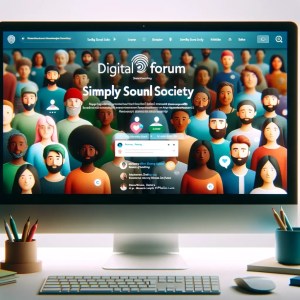
Are you seeking to connect with a community of like-minded individuals passionate about sound advice, healthy relationships, and engaging discussions? Look no further! Our Simply Sound Society forum is the perfect place for you to share your thoughts, gain new insights, and be a part of an active and supportive community. Whether you’re looking to discuss the latest trends, seek advice, or just share your experiences, our forum provides a welcoming space for all. Don’t miss out on the opportunity to engage with others who share your interests. Join Simply Sound Society today and be a part of our growing community!
Visit Our Forum Now and start your journey towards enriching conversations and invaluable connections! 🌟
Check out some of our other great reads:
